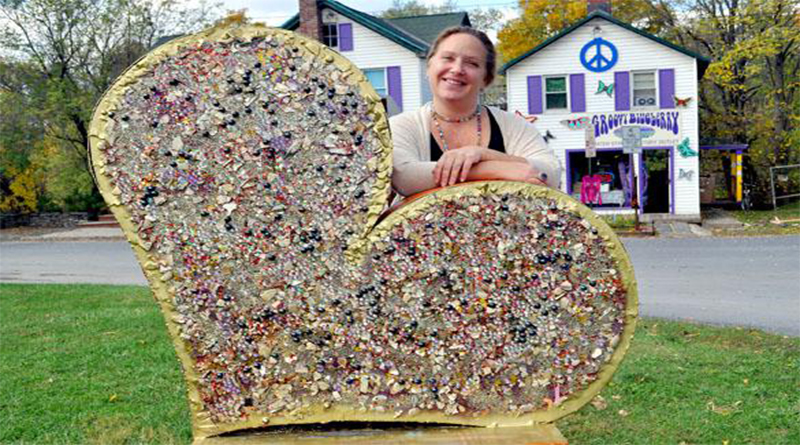Story by Emily Fego
Edited and Packaged by Ophelia Xie
Sexual assaults on college campuses, like the largely publicized Brock Turner case in 2016, have been pivotal in forcing administrators to make a choice: to ignore the issue or face it head on. SUNY New Paltz hired Amy Westberg as its Crime Victim Advocate in September 2018 to accommodate the unique needs of victims. In the past year, Westberg has provided services such as counseling and collaboration with other groups on and off campus which educate and create a safe space for survivors. She has been part of the larger movements, such as Chanel Miller’s memoir titled, “Know my Name: Chanel Miller” published this year following the aftermath of being sexually assaulted by Turner. As a survivor herself, Westberg has dedicated her work to give other survivors back their voice and control over their lives.
What drew you to this kind of work?
I knew I wanted to create spaces to form healthy relationships with one another where we can transform culture and really show up in ways that we need to in terms of creating cultures of caring. That’s really what drew me to the work and understanding that we need to do a better job of addressing harm. We generally run away from those difficult conversations and we need to have those conversations in order for healing to take place, in order for people to come together as a collective community, to know how we can best support one another in just being human.
There are signs all over campus for the Trauma-informed Yoga. What are some of the specific events that you are doing on campus?
The Trauma-informed Yoga space provides that rest, that place to be comforted and supported in a community of people who are showing up in that way, knowing that this is going to be a space where it is sensitive to the harms that have been caused to one another. All abilities are able to come. They can sit in a chair, modify the movements so it is providing access on a level that everyone is able to come as they are, which is really unique.
Another one is the support groups we’ve extended for female survivors and non-gender binary queer survivors. There is limited access to resources for our LGBTQIA community and we need to provide those spaces for people and in a confidential setting and location to keep that anonymity of folks who have not come out as survivors.
At orientation, many students watched the “Tea Consent” video, which uses tea as an analogy for sexual consent. How do you think we can extend this conversation?
The tea video really goes into depth about how that conversation can go and how those boundaries can be crossed and when consent has not been given, which I really appreciate. Now we need to take that into normalizing sexual intimacy with a partner. It’s about having conservation first before it’s in the heat of the moment. If we are in the heat of the moment it is so much harder for us to pause and think, am I okay with going this far with someone?

What is the significance of replacing the word “victim” with “survivor”?
Within different systems, there is power to each name. With “victim,” there is power when it comes to the criminal justice system. If you are a victim of a crime, you are entitled to a criminal prosecution to hold that person accountable in a punitive way. “Survivor” is reclaiming your space, the places that you were harmed, and saying that this person who took my power away no longer can do that to me.
In cultivating that wisdom in yourself, you then become a leader; it’s this victim, survivor, leadership thread that people will continuously go through throughout their lives. I don’t think it pertains only to sexual violence.
“It’s a cycle that we are continually being renewed by doing that deep work within ourselves.”
You deal with heavy issues every day in your work. How does this affect your personal life?
It is extremely heavy work but at the same time I am witnessing people rising, people’s resilience, people’s own power to do the hard work, and it’s truly inspiring to witness someone rising from this deep depth within themselves. To be able to hold that space is a privilege because someone is trusting you with their most vulnerable story. I need to make sure I am doing the self-care work of knowing how I am feeling that day, knowing how I am going to take care of myself at the end of the day so I am able to better hold that space, hold that pain for someone to feel that empathy.
What qualities do you have that make you good at what you do?
I am a survivor of intimate partner violence so I understand that pain and I understand that feeling within to rise above and that feeling within to know this isn’t only who you are, this is just part of your story I think is unique. There is also a deep responsibility in creating a trusting relationship that extends beyond just a counseling room and I take that very seriously of wanting to be a consistent trusting person in someone’s life.
